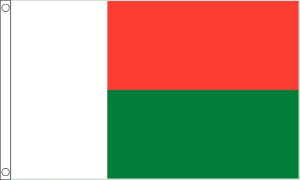Difference between revisions of "Language/Southern-betsimisaraka-malagasy/Culture/Fady-(Taboos)"
m (Quick edit) |
m (Quick edit) |
||
| Line 8: | Line 8: | ||
As a part of the Southern Betsimisaraka Malagasy culture, Fady (Taboos) plays an important role in shaping the customs and beliefs of the community. Fadys are traditional beliefs that restrict certain actions or behaviors that are culturally unacceptable. It is believed that disobeying a Fady will result in misfortune or bad luck. That is why it is crucial to familiarize oneself with the Fadys in Southern Betsimisaraka culture to avoid offending the locals or engaging in culturally inappropriate behavior. | As a part of the Southern Betsimisaraka Malagasy culture, Fady (Taboos) plays an important role in shaping the customs and beliefs of the community. Fadys are traditional beliefs that restrict certain actions or behaviors that are culturally unacceptable. It is believed that disobeying a Fady will result in misfortune or bad luck. That is why it is crucial to familiarize oneself with the Fadys in Southern Betsimisaraka culture to avoid offending the locals or engaging in culturally inappropriate behavior. | ||
<span link>Take some time to dive into these other pages after completing this lesson: [[Language/Southern-betsimisaraka-malagasy/Culture/Ancestors-and-Ancestral-Worship|Ancestors and Ancestral Worship]] & [[Language/Southern-betsimisaraka-malagasy/Culture/Religious-Celebrations|Religious Celebrations]].</span> | |||
==History and Significance== | ==History and Significance== | ||
The origins of Fady in Southern Betsimisaraka culture can be traced back to ancient times when they were mainly centered around religious and superstitious beliefs. Over time, these Fadys evolved and became an inseparable part of the culture. Today, Fadys are respected and followed by the community and are considered an essential aspect of maintaining a harmonious way of life. | The origins of Fady in Southern Betsimisaraka culture can be traced back to ancient times when they were mainly centered around religious and superstitious beliefs. Over time, these Fadys evolved and became an inseparable part of the culture. Today, Fadys are respected and followed by the community and are considered an essential aspect of maintaining a harmonious way of life. | ||
| Line 62: | Line 64: | ||
[[Category:Southern-betsimisaraka-malagasy-0-to-A1-Course]] | [[Category:Southern-betsimisaraka-malagasy-0-to-A1-Course]] | ||
==Other Lessons== | |||
== | |||
* [[Language/Southern-betsimisaraka-malagasy/Culture/Ancestors-and-Ancestral-Worship|Ancestors and Ancestral Worship]] | * [[Language/Southern-betsimisaraka-malagasy/Culture/Ancestors-and-Ancestral-Worship|Ancestors and Ancestral Worship]] | ||
* [[Language/Southern-betsimisaraka-malagasy/Culture/Madagascar-Timeline|Madagascar Timeline]] | * [[Language/Southern-betsimisaraka-malagasy/Culture/Madagascar-Timeline|Madagascar Timeline]] | ||
| Line 75: | Line 76: | ||
{{Southern-betsimisaraka-malagasy-Page-Bottom}} | {{Southern-betsimisaraka-malagasy-Page-Bottom}} | ||
<span links></span> | |||
Revision as of 23:13, 27 March 2023
As a part of the Southern Betsimisaraka Malagasy culture, Fady (Taboos) plays an important role in shaping the customs and beliefs of the community. Fadys are traditional beliefs that restrict certain actions or behaviors that are culturally unacceptable. It is believed that disobeying a Fady will result in misfortune or bad luck. That is why it is crucial to familiarize oneself with the Fadys in Southern Betsimisaraka culture to avoid offending the locals or engaging in culturally inappropriate behavior.
Take some time to dive into these other pages after completing this lesson: Ancestors and Ancestral Worship & Religious Celebrations.
History and Significance
The origins of Fady in Southern Betsimisaraka culture can be traced back to ancient times when they were mainly centered around religious and superstitious beliefs. Over time, these Fadys evolved and became an inseparable part of the culture. Today, Fadys are respected and followed by the community and are considered an essential aspect of maintaining a harmonious way of life.
Types of Fady
The Fadys in Southern Betsimisaraka culture can be classified into different categories.
Ancestral Fady
Ancestral Fady is one of the most common types of Fady in Southern Betsimisaraka culture. It involves practices or beliefs that pay respect to the ancestors, including not speaking or eating before the elder or respecting burial sites.
Environmental Fady
Environmental Fady is a type of Fady that relates to the environment and involves restrictions on hunting, fishing, or cultivating certain farm crops. Certain animals or fish can also be considered sacred and thus, harmful to hunt or consume.
Personal Fady
Personal Fady refers to individual Fadys that are followed by people based on their beliefs or experiences. These can include avoiding certain numbers, colors or objects due to personal superstitions.
Examples of Fady
Here are some examples of Fady in Southern Betsimisaraka culture:
| Southern Betsimisaraka Malagasy | Pronunciation | English |
|---|---|---|
| Mbola tsy hita fa misy raharaha! | mboola tsee heeta fah missi raha-raha | We haven't seen each other for a long time |
| Toy ny rano fitomboan-taloha | Tooy nyo rahnoo feetombohan-taloha | Like the water of the ancient well |
| Fanafody ny varavaran-tserasera | Fanafoo-dy ny varavaran-tserasera | When the graves become medicine chests |
| Mety ho voky ny lamba tsy maintsy hilatsaka | Meta hoo vow-ky ny lamba tsee man-tsii heelat-saka | The cloth may be dirty but it must still be worn |
Additional Vocabulary
Here is a list of additional vocabulary related to Fady in Southern Betsimisaraka culture.
- Fady - Taboo
- Ankoho - Sacred tree
- Tsimihety - A tribe with their own set of Taboos and laws
- Tsy miankina - not allowed/forbidden
With this lesson, you have learned about the importance of Fady (Taboos) in Southern Betsimisaraka culture. By respecting these traditional beliefs, you can have a better understanding of the customs and beliefs of the local community. Remember to familiarize yourself with them before visiting Southern Betsimisaraka communities to avoid taboo actions or behavior.
